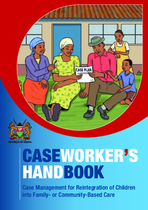
Background Information
Jane has an undergraduate degree in Environmental Studies (Community Development) from Kenyatta University. Jane received has received extensive social work training since university to enhance her own skills and knowledge about how best to serve her clients.
Our Interview With Practitioner
Jane is especially sensitive to the needs of vulnerable children, especially those who have social, emotional or economic challenges that create barriers to their safety and positive development, and has received has received extensive training to enhance her own skills and knowledge about how best to serve her clients.
1. Every person has strengths but just needs to be reminded of what they are so that s/he can realize his/her potential to live fulfilling and happy lives.
2. Providing an environment of compassion and support is critical to help individuals and families overcome obstacles to move forward and thrive.
- AFC Guidelines
- Kenya Case Management Package
Because of a commitment to serving the needs of children and families. She draws the motivation for her work from the knowledge that her efforts have a positive impact on the lives of vulnerable children and families. Jane believes that she is making a difference as every day she gets to see an improvement in the lives of the people she serves in the communities she works in, and this gives her a lot of fulfillment.
Where They Operate
Key Areas of Work
Languages Spoken
Practitioner Resources
This Handbook is a summarized, simplified version of the Case Worker’s Guidebook for Case Management for Reintegration of Children/Young Adults into Family- or Community-Based Care. It provides an overview of the principles and practices of case management for reunification and placement of children/young adults outside of parental care (e.g., street-connected children/young adults or from Charitable Children’s Institutions and Statutory Children’s Institutions) into family- and community-based care, up until sustainable reintegration is achieved. The Handbook aims to provide an easy and quick reference to critical information and “how to” about case management for reintegration.
The initial goal of the development of these guidelines was to seek to regulate Guardianship and Foster Care of children in Kenya.


